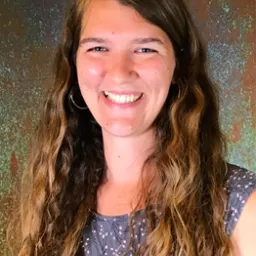
I spent six years in foster care, and although difficult in many ways, that time during my youth gave me the resilience, passion and drive for the life I have now. I consider myself one of the foster care success stories. But, I can’t imagine if coronavirus had hit when I was transitioning out of care.
I am in a Masters program at Oregon State University. I work as a lab instructor for the 200-level biology series and student teach at a local high school. I’m involved with Oregon Foster Youth Connection and am a part of the Legislative Action Team and Conference Planning Committee. But my journey has not been easy. I entered foster care when I was 14 years old. I first lived with my grandmother, then family friends, my aunt, and then a foster mom. I ended up getting separated from both my sisters and was briefly placed back with my mom for a time. While I was in foster care, I had great Independent Living Program workers who helped me prepare for college and move into the dorms and eventually get my own apartment.
Maybe it wasn’t the “normal” or “familiar” path, but I’m grateful that there were programs in place to help guide me here. Despite COVID-19, my job is still stable. I just have to teach my biology labs over Zoom. It’s a little more difficult to communicate with my students due to the new norm, but we’re adjusting. I’m lucky I got where I did before the Coronavirus.
While Congress will have innumerable issues to focus on during the coming weeks and months, this is no time for them to forget the young people in foster care who will need even more help than what I received. Many kids who worked hard to get to college will have nowhere to go. Many who showed up for work every day will lose their jobs. Congress should increase resources to young people as they transition from foster care, such as more housing, educational support, and vocational training. Our leaders can also provide emergency money for basic needs and more mental health support to young people. The government can develop opportunities for young people to find peer support by connecting with other youth in or from foster care, and ensure that young people have more access to participate in the decisions made about their foster care plan.
I wish that my Congressperson knew that foster youth and former foster youth are particularly vulnerable to housing and food insecurity issues—we don’t always have homes to return to, adults who see us as their own, and friends in a position to take us in.
Youth like me, who have left foster care without family, have what it takes to succeed, but we can’t do it alone especially now. We’ve proven it over and over again that we can succeed, when the right supports are available. We get degrees and jobs and we build lives we can all be proud of. But right now, young people who’ve been through foster care are going to need a little extra help.
---
This perspective piece was written by Hannah Royal, a 23 year-old graduate student at Oregon State University.
